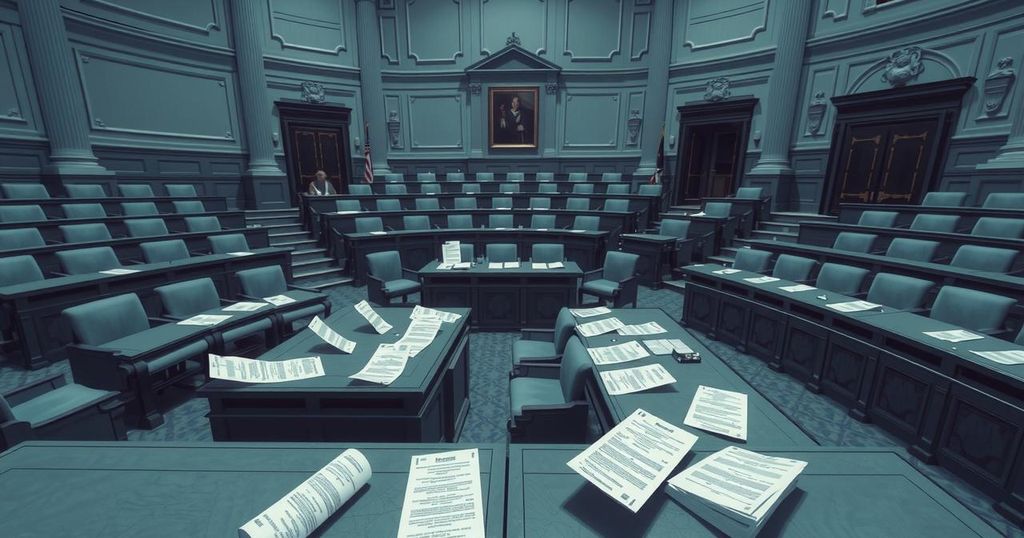Colombian Lawmakers Reject President Petro’s Labor Reform Referendum

Colombian lawmakers have denied President Petro’s referendum to reform labor laws, rejecting proposals to limit work hours and ensure holiday pay. Despite multiple attempts to push for changes, the administration faces ongoing congressional resistance. A new avenue has emerged for potential debate as a group of lawmakers has reinstated earlier proposals, but the legislative clock is ticking ahead of a June 20 deadline.
In a recent turn of events, Colombian lawmakers have once again thwarted President Gustavo Petro’s attempts to reform the nation’s labor laws, rejecting a crucial referendum intended to address working conditions. Specifically, this referendum would have allowed Colombian voters to weigh in on limiting workdays to eight hours and ensuring double pay for holiday work. This marks another setback for President Petro, who has faced resistance from Congress on this issue, having previously attempted to pass labor reforms twice this year.
Earlier this month, Petro urged Congress to endorse a 12-question referendum, emphasizing its significance for the Colombian workforce. Addressing a crowd during a Labor Day rally on May 1, he warned lawmakers that blocking the referendum could have political repercussions in the upcoming 2026 elections. “Colombians will punish them at the polls if they do not approve it,” he asserted, highlighting the discontent among workers.
Following a heated debate, the final vote resulted in 49 senators opposing the measure and only 47 supporting it. In the wake of the vote, President Petro criticized the outcome, labeling it as fraudulent and suggesting that lawmakers are dismissing public needs. His administration has consistently stressed the urgency of these reforms, aimed at enhancing job security and working conditions.
Among the key proposed changes that would have appeared on the referendum were questions about setting the end of daytime work at 6 p.m. and the introduction of open-ended employment contracts. Such provisions, according to Petro, are essential to provide stability for Colombian workers who are increasingly calling for better treatment in the labor market.
In somewhat of a twist, a group of congressmen yesterday successfully reinstated a previous proposal for labor reform that had been dismissed in March. This action opens the door for renewed debate over Petro’s labor initiatives and could lead to potential approvals. However, the clock is ticking, as lawmakers have a June 20 deadline to revamp the labor legislation.
The political landscape remains tense as the administration continues to face hurdles in getting its agenda through Congress. This rejection not only reflects deep divisions within Colombian politics but also raises questions about how the government will proceed with its labor reforms moving forward.
The Colombian legislative assembly’s rejection of President Petro’s labor reform referendum underscores significant political divisions and challenges faced by the administration in enacting social policy changes. Despite a fraction of congressmen aiming to revive and potentially pass these reforms, substantial opposition persists. Ultimately, the future of labor laws and worker protections in Colombia hinges on upcoming negotiations and the looming June 20 deadline.
Original Source: www.newsday.com








